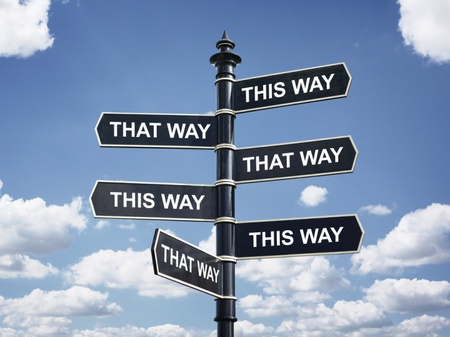The world offers examples in most societies of very divided opinions which seem impossible to reconcile. Elections find people ranged on one of two sides of the political divide: go forward or go back. Just when we think that some progress being made, then there is a reaction and a resolute attempt to undo change. So, what is behind the Trump phenomenon or Brexit or the Middle East that makes it look as though nothing changes, except that nothing changes?
Globalization looked like the answer to everyone’s dreams: a world where people and money would pass freely across borders. Excellence would prevail, and markets would address inequality because where there is a demand, there will always be a supply. No need to regulate or interfere in this process – it would happen automatically. All we must do is ‘Think global and act local’.
Those who study change events in organizations refer to convergence and divergence: convergence is the tendency for things to become much the same wherever you go in the world. Standards make sure that wherever you fly, the same standards will apply, and your flight will be reassuringly safe. Universally applied standards mean our safety is assured wherever we go and whoever we fly with. That is a good example of thinking global.
In contrast we have divergence: when you go to another place on holiday you won’t hear the same language spoken; there will be different conventions for food; behaviour in public; manners and social interactions; the way we do things round here will be different. If you want to get on and blend in, act local.
What Europe shows as is that we can get so far in agreeing to travel in union, but eventually someone in the group feels uneasy about continuing change and wants to return to what they once had and resist any more change to the way we do things round here. So, for example, as industries die the communities that worked in them are left without a future. It only takes a politician to promise a return to the past and there will be immediate support from the group.
Today we stand at cross-roads. We can go forward together and seek to conserve the world’s resources and share them equitably among all; we can work for a society where people have a worthwhile job, the chance of a home, and a fair work-life balance. Or we can go back to the past; live in fear; pay more-and-more for less-and-less; and resent others who aren’t like us.
Think global, act local is not an easy balance to achieve. But disregarding either factor will lead to division and a world that cannot respond to the needs of all its people. We need change agents: people who will make it easy for others to succeed. Good parents do it; good teachers do it; good managers do it. We need politicians and financiers who will do it too.
Dr Julian Randall is a senior lecturer in Management Studies at the University of Aberdeen Business School.


